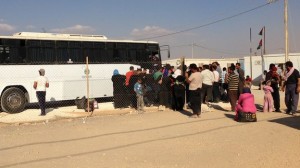By Justin Dorman
Impunity Watch Reporter, Middle East
TEHRAN, Iran – Facebook activist Sattar Beheshti has been reported dead in Iran.

Beheshti was a thirty-five year old blogger who cared deeply for his fellow Iranians. Sattar once said “that he saw the faces of the people in his country, how difficult their lives were and how poor they were, and that he couldn’t be quiet as long as they suffered.”
Beheshti was arrested in his family home in the city of Robat Karim by Fata [cyber] police. He was detained for alleged opposition activism on Facebook. Beheshti is one of many Facebook activists to have recently been arrested in Iran. While Facebook is blocked in Iran, millions of Iranians still utilize the site through virtual private networks and proxy websites.
Just prior to his arrest, Beheshti wrote that, “[t]hey threatened me yesterday that my mother would wear black because I don’t shut my mouth.” It now appears that the Iranian authorities have made good on their threat. Many believe that the Fata were using Beheshti as an example to warn other Tweeters and Facebook posters about what would happen to them if they wrote negatively about the Islamic Republic of Iran.
Beheshti was initially brought to Evin prison to be interrogated. In places like the Evin prison and Kahrizak Dention Centre, the phrase interrogation is synonymous with torture. It was reported by prisoners of the Evin ward that Beheshti was badly beaten and that there was not a square inch of his body that was not left black and blue. While it has yet to be independently verified, its been said that Beheshti died “under torture” while being interrogated by security officials at Kahrizak.
Claims of Beheshti’s death have surfaced as a result of phone calls made from the authorities to Beheshti’s family. Beheshti’s sister said to Masih Alinejad, a U.K.-based Iranian journalist that, “[t]oday they called my husband and asked him to prepare me and my mother and buy a tomb for his dead body.” Another family member reported to Sahamnews that, “[t]hey called us today and asked us to collect his dead body tomorrow from Kahrizak.”
Alistair Burt, the U.K.’s minister for the Middle East and North Africa, is in disbelief of the tragedy that has occurred stating that all Beheshti did was advocate for human rights over the internet. He holds the Iranian regime fully responsible for the prisoner’s welfare in prison and urges the authorities to confirm what has happened.
Beheshti is allegedly not the first person to have died while being tortured at Kahrizak. Other prisoners have also claimed to have been raped. In 2010, a doctor came to the detention center to examine victims, and was shot dead, not long after.
Beheshti’s death, while meant to be a warning, may have served to further unite the opposition. Reza Mohajerinejad, one of the original student organizers of 18 Tir, is enraged and asks his fellow people, “How long will we watch this regime take the lives of our young people? How long will we wait?”
For further information, please see:
Iranian – The Killing of Sattar Beheshti – 7 November 2012
Baztab – درگذشت یک وبلاگنویس حین بازجویی، نگذارید به سرنوشت پرونده کهریزک تبدیل شود
– 7 November 2012
Guardian – Iranian Facebook Activist Sattar Beheshti Feared Dead in Custody – 7 November 2012
Sahamnews – Sattar Beheshti Tortured to Death – 7 November 2012


